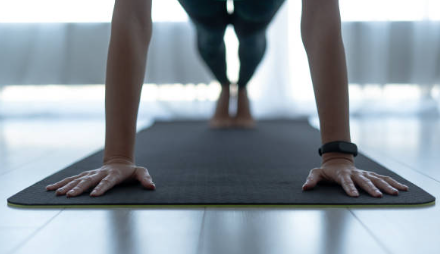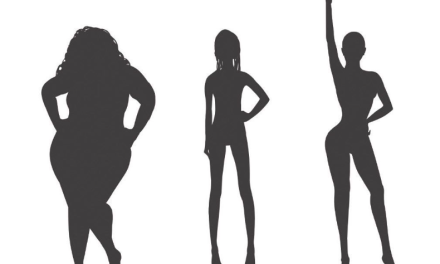Why do people always feel tired and fall asleep easily when they go to work? What’s behind this sleepiness? How do you do it? With this in place, you can get rid of the “sleepiness” that often occurs at work and face each day with energy.
What are the causes of these drowsiness? You know as well as I do. That is – “No sleep when you should sleep”!
It is a habit that has been formed for tens of thousands of years and has been deeply embedded in our genes. But today it has been dramatically changed! Getting to bed before 10 is becoming more and more difficult. Some people are doing it for work, some are watching TV, or simply don’t want to sleep and feel like going to bed early is a waste of time! In fact, speaking of here, also deeply remorse ah, I am also a member of this. Take this opportunity to reflect on yourself.
So what’s the harm of going to bed late, little or no sleep? Through the following case analysis:
Sleep is an essential rest for our brains. Over the course of a day’s work, large nerve cells produce metabolites called beta-amyloid and tau, which, when deposited in the brain, are highly neurotoxic and can kill brain cells. When the brain is at rest, the space between the brain cells becomes larger, and cerebrospinal fluid circulates between the brain cells faster than when awake, which helps the brain get rid of these garbage and toxins. If you go to bed late or sleep too little, you disrupt your brain’s detoxification process, so not only will your brain feel sleepy the next day, but it may even feel stupid. Remember that this toxin is also involved in Alzheimer’s disease, commonly known as senile dementia.
Sleep deprivation can lead to mood swings. Experiments on doctors who worked night shifts found that they were more likely to have big mood swings than those who did not. It is generally believed that emotion is related to the functional activities of the hypothalamus. When sleep is deprived, it will cause the disturbance of cerebral blood flow supply and the level of glucose metabolism in the thalamus is significantly reduced. The decrease of glucose metabolism will affect the normal function of the thalamus and lead to neuronal dysfunction and disorder, and people are more likely to have emotional fluctuations.
Sleeping late and sleeping less can also cause memory loss. Studies of sleep deprivation in mice have shown that the longer the deprivation, the greater the damage to memory. But with the same amount of sleep deprivation, the brain’s memory was less damaged by intermittent deprivation than by continuous deprivation. Therefore, professionals, please try not to sleep late, sleep less, not to stay up all night, because this will not only cause the next day sleepiness, but also cause great invisible damage to the brain, memory decline; If you really need to stay up late, you can have intermittent sleep, such as working for two hours, rest for half an hour, and then continue to work, which is much less harmful to the human body than staying up late.
Staying in one position for too long is another cause of boredom in the workplace. Because the way we live and work these days is mostly sitting. This is especially true when you’re busy, which can mean hours, or even more than a dozen hours, curled up in front of your computer. In such a position, the back muscles will be stretched for a long time and overused, which will cause fatigue and even damage to the back muscles. This is extra-territorial and increases metabolites. Because of prolonged contraction of these muscles and excessive pressure on the surrounding soft tissues, blood circulation is reduced, lymphatic circulation is reduced, and these wastes are not discharged, causing fatigue and pain throughout the back.
In addition, sitting for a long period of time, can let us produce the phenomenon of thoracic kyphosis, our ribs stuck at this time, is difficult to make a deep breath, cause for a long period of time the brain and body oxygen supply is insufficient, and cause which feature and fatigue.
So, to combat this phenomenon, you should set an alarm on your phone, every half hour to force yourself to stand up from the stool, hands up to do a deep stretch, big breath, and hold for half a minute, this will quickly adjust the body to the best working condition.
The third cause of sleepiness is probably overadaptation. You have no doubt experienced that if you have a gentle, sustained, monotone, repetitive sound coming from your ear, you will quickly fall asleep. Yes, a lot of lullabies are like that, and a lot of people are speaking in a way that might make you feel that way. It’s a trait that has evolved over tens of thousands of years.
We are particularly sensitive to sudden changes in the world, such as when a cat darts past you in a quiet room, even if it is only at the edge of your peripheral vision. Because in the long evolutionary process, animals in order to avoid danger, especially the killing of natural enemies, the formation of such a survival mechanism. For those who stay the same for a long time, they think it is safe, so they relax their guard and gradually enter the state of sleepiness, even sleep.
So, if you experience frequent sleepiness at work, but don’t stay up late or stay in the same state for long periods of time, then you may want to consider changing jobs, because the environment has made you lose your basic sensitivity, alertness, numbness, and tiredness.








Well I truly enjoyed reading it. This post procured by you is very effective for accurate planning.
Thank you for your articles. They are very helpful to me. Can you help me with something?
Your articles are extremely helpful to me. Please provide more information!
Thank you for writing this post. I like the subject too.